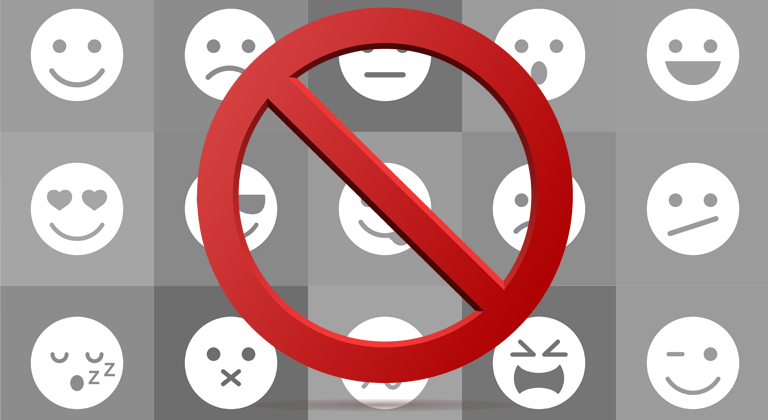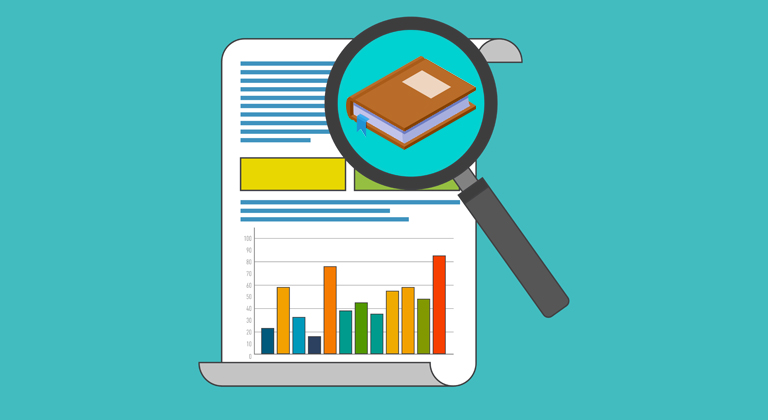When it comes to your ads, don’t trust your gut!
Often, the quickest way to fail when it comes to promoting and marketing your book is to make decisions on how you feel. Feelings are great when it’s time for writing, but only cold, clinical data can truly guide you forward after publication – or talk you off the ledge when you’re ready to quit. It doesn’t matter if you’re an entrepreneur, a billionaire, or an author looking to market your latest novel – numbers don’t lie!
A few months ago, we published a blog about how to calculate the value of your advertising spend. Since then, I’ve worked with several authors who’ve benefited from a deeper dive into the subject, since it’s one of the biggest and most deadly stumbling blocks for those authors hoping to make a living out of writing.
The Importance of Data
Billionaires become so through fractions of a percentage. An increase of a penny on a Wall Street stock might not sound like much, for example – but if you’ve got a million of those shares, that’s an instant $10,000 increase in the value of your portfolio.
But for those of us without a million shares of anything, we might roll our eyes at the news of a stock increasing just a penny. In fact, we might even be disappointed that it ‘underperformed’ – and cheer in agreement when we listen to the pundits label that stock as a stinker.
But this is why we’re not billionaires!
Billionaires make decisions by looking at the cold, clinical data – the same way a Blackjack dealer will always hold on 17. It’s entirely possible for the casino to lose on a single hand by doing that – but over the course of a thousand hands, the law of averages has determined that a casino will win more hands than it loses.
Numbers don’t lie – it’s as simple as that! Which is why keeping track of your numbers and comparing them is the only way to make informed, effective decisions about the money you spend advertising.
Fact versus Gut
The reason this winds up being a stumbling block for so many authors is because many of them rely on their feelings to guide their decisions, rather than the data – and I speak from experience!
I’ve thrown hundreds of dollars into advertising campaigns that lost me money, and I’ve pulled the plug on campaigns that were delivering. Both times, it’s because I didn’t do the math until later – and I went with what my gut was telling me.
Intuition is normally your friend – but not when it comes to data. One bad impression can create a reality in your head that’s completely divergent with the facts – and that’s dangerous.
Elon Musk said: “Never reason with analogy.”
In truth, the advertising campaigns that work the best aren’t the ones that fill you with wild elation or excitement. There is never going to be a ‘Eureka!’ moment when you’re making so much profit from spending $5 a day advertising your book on Facebook that you can suddenly quit your job.
The best performing campaigns are the quiet ones – like a boring, old traffic ad I have on Facebook that delivers a reliable 70% return on investment. In real terms, that means you’ll get your money back for every dollar you spend, plus about 70 cents extra.
For regular folk like you or me, that might not sound impressive. You want the ad that delivers 500% return on investment. You want to quit the rat race and retire to the tropics!
But a billionaire would look at a machine that delivers 70% return on investment with dollar signs in their eyes – because if they were able to pour $10,000 into that, it would deliver $7,000 in profit.
Now, obviously, those are the kind of figures most of us authors don’t get to play with… at first.
But the big-name self-published authors selling millions of copies of their books do. They identified the campaigns that worked and stuck with them – overcoming the challenges of scaling their ads and slowly building their income month after month… Year after year…
Many self-published authors earning enough to live off admit to spending 40% of their royalties on advertising – so that’s a reality you’ll have to accept as well. If you can’t ever imagine plonking down your credit card to spend $4,000 on Facebook ads each month, you’ll never see the reality of the $70,000 annual income that it might provide for you.
Ultimately, self-publishing is a business – and while it’s got lower margins, more competition, and a great many more wildcards than the average business might, it still adheres to the same rules. You just have to learn them.
Peter Drucker Said: “If you can’t measure it, you can’t improve it.”
This is why keeping accurate, objective data about the performance of your books is vital for success.
There are so many ways in which the connection between your ad and your book get lost that it’s often difficult to figure out whether or not your Facebook, Bookbub, or Twitter ads are working.
Likewise, your Advertising on Amazon dashboard might report that you’re making money – but isn’t reporting every book sale that your marketing delivers. For example, when I recently advertised Book 11 in my romance series, I actually ended up selling more copies of Book 1 as a result!
I’ve made my best marketing decisions not by following my gut (in fact, I’ve made quite a few crappy ones that way) but by looking at the data.
For example, I discovered that ad returning a 70% profit not from the cost-per-clicks I was getting, or even the daily sales on Book Report. It wasn’t until I compared a full month when I wasn’t advertising with a month when I was before I noticed a cumulative spike in sales that couldn’t be explained any other way.
It’s very easy to get disheartened by one bad day of sales, or experience euphoria at a great one – but a single day doesn’t make your career. That’s like people saying that climate change isn’t real because it snowed one day in March.
It’s all about the big picture – comparing weeks or months against each other to figure out if the advertising you were doing made a difference.
How do you do that?
In the case of my favorite traffic ad, I worked out what return I was getting by comparing a full month in which I wasn’t advertising at all against a full month in which I was running the ad.
As further proof that Amazon has become a pay-to-play marketplace, my catalogue of 15 full-length romance novels with thousands of 4 and 5 star reviews between them generated an average of $23 in daily sales on the month I didn’t advertise.
$23 bucks? For all that work? Sob.
Then, I started spending $30 a day on a Facebook traffic ad, and after the initial learning was completed, I ran it for a full month to compare the results.
My best day saw me break $102 in book sales.
My gut told me this was amazing. The advertising works!
My worst day saw me bring in $43 in royalties.
My gut told me this was a disaster. I’m throwing money away!
However, when I averaged out the entire month, I found myself getting $74 in daily book sales – and it was math, not my gut, which told me what that meant to my writing career.
$74 minus the $23 I would get in typical daily book sales left $51.
$51 minus the $30 dollars I was spending on advertising left $21, which equates to the 70% ROI I mentioned.
That was $21 dollars I wouldn’t have had if I hadn’t been advertising my books.
By the time I’d realized that, it wasn’t my gut I was listening to. It was my calculator as I worked out how much I’d need to scale that advertising to make a living from it.
In a billionaire’s eyes, I was killing it with this ad – but my gut instinct had taken me on a roller coaster ride and never once actually told me anything useful. If I’d have trusted my gut, I might have pulled the plug on this ad; which is why its so important not to trust your gut when it comes to money.
Conclusion
Authenticity is the winning attribute of a successful writer. Objectivity is the winning attribute of a successful advertiser. If you’re able to combine the two, you might find you’re on a faster track towards self-publishing success than you might ever have realized.












I have to really disagree with the assessment of instinct as feeling. Some people are instinctual thinkers. Some are analytical thinkers. It’s not about how much they base decisions on feelings. If you think of MBTI, these are two different areas– S vs N is analytical vs instinctive and F vs T is feelings verses thinking.
I’m an intuitive person who also makes decisions prioritizing facts and logic, not feelings.
But ads are not all logic. They are emotional too. We need to craft creative that appeals to readers. They’re making an emotional decision. They aren’t buying books because they’re useful. They’re buying books for an emotional experience.
What image will connect with readers? I can run a million tests and see what gets the best CTR on a landing page. Or I can follow my instinct, since I know the book and the audience.
I’ve had good results with both, but I usually have better results when I start with instinct. After I start, I look at ad metrics, but I don’t actually have a lot of useful data. At the end of the day, none of the metrics on the ad themselves matter for my overall profit. Only one metric matters: spend vs. sales.
Yes, if I can’t get past the feeling I shouldn’t have to spend money, or it’s wrong to spend a certain amount of money, that may hamper my business. But it isn’t necessarily a bad move. I’m a heavy advertiser and I’m not ashamed to admit it, but many of my risky ad decisions have failed. Some have succeeded. Some not so much.
I have friends who spend more conservatively who don’t make as much profit as I do, but they still make a solid profit with a great ROI.
It’s dangerous to profits to underspend but it’s dangerous to overspend too. There’s no one size fits all solution.